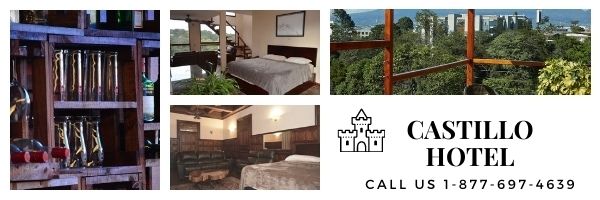From this mornings
AM Costa Rica.
Quote:
A positive report on seeking a U.S. visitor's visa
By Garland M. Baker
Special to A.M. Costa Rica
A long-time friend asked for a recommendation letter last week so she could apply for her U. S. visa. Reluctantly, this author agreed to provide the letter. She picked it up and nervously went off to her appointment that she scheduled months ago. Expats complain all the time they can not get their girlfriends or boyfriends visas to the United States. A single woman, like the friend, would seem to be a certain refusal.
The woes of those seeking U.S. visas were outlined here in a 2007 article, "Burden of evidence is on those seeking a U.S. visa."
Many hours later, the friend called and said she got a 10-year visa with no trouble at all. The embassy employees were correct in giving her a visa even though some of the paperwork she took with her was not very impressive. A bank account had $200 in it and an average balance of around $250. She even forgot most of her payroll slips from her current job.
What she had and what got her the visa was arraigo. This word in Spanish means: ties, roots, settlement, or otherwise just being established somewhere. It means living somewhere with roots where it would not be easy just to go off to the United States permanently.
The friend is a Panamanian. She could have moved back to Panama years ago to be with her family, but she did not. Instead, she entrenched herself into Costa Rica, making it her home. She painfully did all that was required of her to get Costa Rican residency and has kept it up-to-date. That, in itself, has not been an easy task, immigration still is a quagmire. Over the past couple of years, the government has had to give extensions to people with expired documents because of bureaucratic inefficiency. She also has had only a very few number of jobs and has stayed in them for years not months.
Looking into the facts of visa issuances verses denials deeper, stastistics show that in the year 2007 — the latest statistics available on Costa Rica — only 22.4 percent of the people requesting visas at the Costa Rican Embassy to go to the United States were denied them. This means 77.6 percent got them. It is important to note, these statistics are for B1, business, and B2, tourism, and combination B1/B2 visas. The 2007 numbers are better than the 2006 visa refusal rates where 24.1 percent of visa applicants were refused U.S. visas. This is a 1.7 percent improvement in one year
Now for a bit of fine print. The tables for the adjusted refusal rates for 2006 and 2007 state that the "data must be read in conjunction with the explanatory notes." They are not too cryptic and are easily understood by anyone interested in the visa program. They also give an invaluable insight to those who have been denied a visa.
The visa refusal rates before 2006 are very difficult to find and are not in nice neat tables as the current ones. The numbers are buried in many other statistics.
Many expats would like to travel to the United States with friends to show them around. If their friend goes about the process the right way and can prove true ties to Costa Rica, he or she probably will get a visa. They have a better than 75 percent chance to do so. The expat also should do a bit of homework and ask the friend the right questions to see if they do have what it takes to get a United States visa. The embassy's Web site is a wealth of information regarding the visa process.
What it takes is a life that is obviously one that makes that person want to live in Costa Rica and not the United States. As stated in the article in 2007, and now on the Web site of the embassy, "Every alien shall be presumed to be an immigrant until he establishes to the satisfaction of the officer, at the time of the application for a visa... that he is entitled to nonimmigrant status . . . ." How can that statement be more clear.
This means that expats who have hooked up with a friend in Costa Rica and promised to show them the United States could get themselves into heaps of trouble if their friend can not qualify. This is very common with the younger friends of the older expats.
Now to be fair, there are horror stories on both sides of the fence. Persons who should qualify do not, and many times an unqualfied person gets a visa. Everyone makes mistakes, even officials at the United States Embassy. The steps to take in the case of a visa denial are clearly explained on the embassy's Web site too. The Web site states, " If your application for a nonimmigrant visa has been refused, you will be told why at the interview and provided with a written explanation. The most common refusals are under Section 221(g) and Section 214(b) of the U.S. Immigration and Nationality Act . . . Under Section 221(g) additional legal requirements must be met before the visa can be authorized." The fine print of the information mentioned above adjusts for denials that have been reversed into approvals, so there is a system to do so.
All in all, it seems like the United States Embassy's information on its Web site regarding immigration and visas to the United States is more comprehensive and better organized than in 2007. The printing wizards to fill out the forms before getting to the embassy are fantastic, a great improvement over the past. Most importantly, more Costa Ricans are going to the United States because visa denials are down, meaning approvals are up, if the State Department statistics are accurate.
_________________

Pura Vida

Only Irish coffee provides in a single glass all four
essential food groups:
alcohol, caffeine, sugar and fat.
Alex Levine











